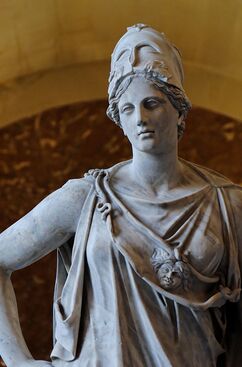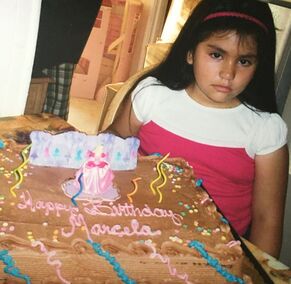|
9/12/2021 0 Comments Murder for murder for murder5 year-old Marcela plotting revenge against Snack Thieves, 2008  Throughout Oresteia, this royal family has some serious issues resolving in homicide. It starts off with Agamemnon sacrificing Clytemnestra's daughter Iphigenia to break the curse that was put on his family and for a chance to have victory in the war they were fighting at the time. I believe that's enough killing in one play for me. But that's just the tip of the iceberg. Iphigenia's death created a domino effect. Clytemnestra feels betrayed, and therefore kills Agamemnon to avenge her daughter's death. Orestes then decides to murder his mother to avenge his father. I don't believe murder should be avenged by murder. M.K Gandhi once said, "An eye for an eye will leave the whole world blind." Instead of eyes, we're talking about lives. A life for a life would leave the world with a population of 0. Personally, this begs the question: how will a death be avenged when the beloved commits suicide? Will there be any vengeance for those lives lost? For revenge purposes, suicide did not happen in Oresteia. Unless I completely missed that, then I apologize. Interestingly, Orestes is the only one taken to a fair trial in front of a judge, an opportunity to represent and defend himself, and 12 of his peers as jury. Before the jurors make their decisions, Athena (left) says that there is no court of vendetta, to exchange a life for a life should not be at the hands of common people. True law will be upheld in court; mercy and punishment will be upheld in court (262-263). A lot of murders could have been avoided if they had followed the justice system. If Clytemnestra were brought to trial for the murder of Agamemnon, or him for the murder of Iphigenia, a lot of problems could have been avoided from the get-go. On the other hand, I would do the same thing. Not the homicide part, but seeking revenge to those who hurt me. When I was a kindergartener, I got ambushed when I went down the slide. One boy was at the top of the slide pulling my ponytail and another one at the exit waiting to steal my Goldfish snacks. I am 18 years old, and seeing those boys walking away, laughing with my snacks still hurts my inner child. I would have loved to steal their animal crackers the next day to get my petty justice. But what would that have solved? I was hurt then, and I would have brought hurt on others. I would have felt a temporarily delight until my teacher calls my mom and tells her about my little act of revenge. I could've held it against them, never play with them during recess or building time in the classroom. But I wasn't an emotionally manipulative five-year-old. Where I failed was when I did not tell the teacher about what they had done to me. Justice would have been served like that. Instead, I sat on it for over 13 years, replaying that incident, imagining how each situation would have turned out in the long run. In other words, I understand the need for justice. I don't think justice should be served by the hands of the person who was hurt. Putting revenge into my toddler hands would only leave me angrier; I was just as upset when there were no consequences for these snack thieves. Having justice be done through the system (in my case, the teacher) would been more rewarding than seeking out revenge against them. In Oresteia, the characters are grown. Grown enough to know what's right and wrong. Grown enough to trust the justice system.
0 Comments
Leave a Reply. |
|

